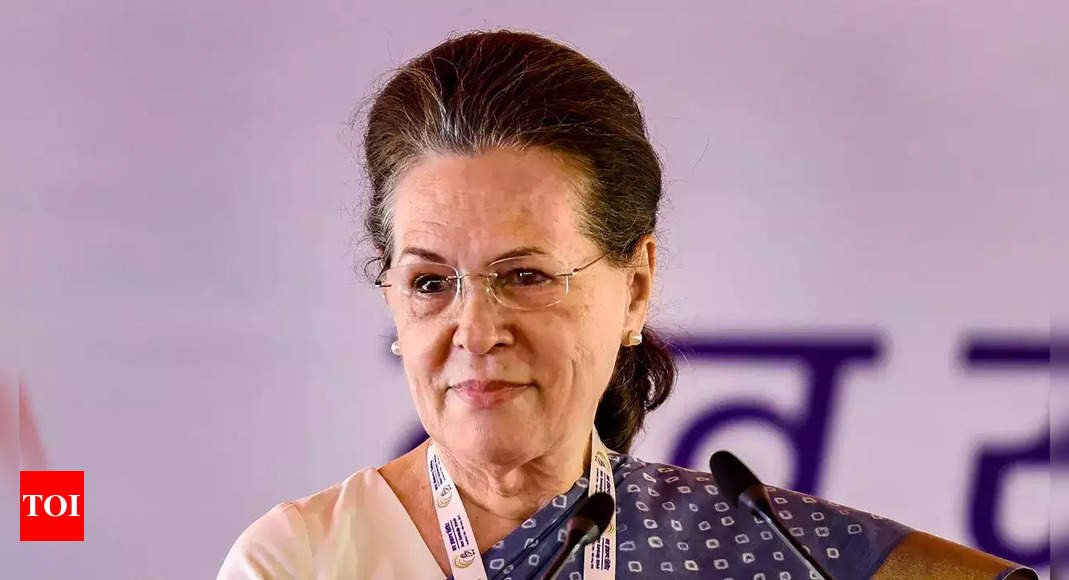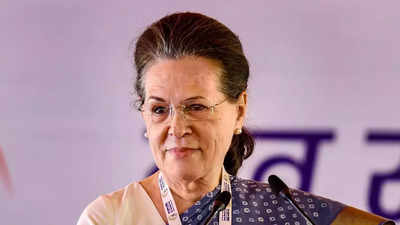NEW DELHI: Congress leader Sonia Gandhi On Monday strongly criticised the National Education Policy (NEP) 2020, accusing the Union BJP government of using it as a tool for “centralisation of power, commercialisation, and communalisation” in the education sector.
The former congress president said, “The Union Government’s track record over the last decade has convincingly demonstrated that in education, it is concerned only with the successful implementation of three core agenda items — the centralisation of power with the Union Government; the commercialisation and outsourcing of investments in education to the private sector, and the communalisation of textbooks, curriculum, and institutions.”
In an opinion piece published in The Hindu news paper, she claimed that the policy hides the government’s “profound indifference” to the education of India’s youth and children.
“Unchecked centralisation has been the hallmark of this Government’s functioning over the last 11 years, but its most damaging consequences have been in the domain of education,” she wrote, alleging that the government has sidelined state governments in key decision-making processes. She pointed out that the Central Advisory Board of Education, which includes ministers from both the Centre and states, has not been convened since September 2019.
Sonia Gandhi also alleged that the government has “coerced” state governments into implementing the PM-SHRI scheme by withholding grants meant for the Samagra Shiksha Abhiyan (SSA). “These funds have been due to States for years as part of the financial support required to implement the Right of Children to Free and Compulsory Education (RTE) Act,” she wrote, adding that even the Parliamentary Standing Committee on Education had called for the unconditional release of SSA funds.
Criticising the NEP’s impact on higher education, she pointed to the new draft guidelines for the University Grants Commission (UGC) in 2025, which she claimed aim to diminish the role of state governments in appointing vice-chancellors. “The Union Government has given itself — through the Governors who are typically designated as the Chancellor of the University — near-monopoly power in the selection of the Vice-Chancellors in State universities,” she stated, calling it a “grave threat to federalism.”
Gandhi further accused the government of pushing for “unchecked privatisation” of school education. She argued that the NEP undermines the concept of neighbourhood schools guaranteed under the RTE Act by promoting the idea of “school complexes,” which she said has led to the closure of nearly 90,000 public schools since 2014 while increasing the number of private schools.
She also criticised the shift from block grants to the Higher Education Financing Agency (HEFA) for funding universities, arguing that it forces institutions to take loans that ultimately result in higher student fees. “Between 78% to 100% of these loans are being repaid by universities through student fees. In other words, the price of the Government’s retreat from financing public education has been borne by students facing fee hikes,” she wrote.
On the issue of communalisation, she accused the government of “indoctrinating and cultivating hatred through the education system.” She cited revisions in NCERT textbooks that removed references to Mahatma Gandhi’s assassination and Mughal history and criticised the hiring of faculty members based on ideological considerations rather than academic merit. “Leadership positions in key institutions… have been reserved for pliant ideologues,” she wrote, warning that the dilution of qualifications for professors and vice-chancellors is part of this agenda.
Calling for an end to what she termed the “carnage” of India’s public education system, Gandhi wrote, “Over the last decade, our education systems have been systematically cleansed of the spirit of public service, and education policy has been sanitised of any concerns about access to and the quality of education.”




